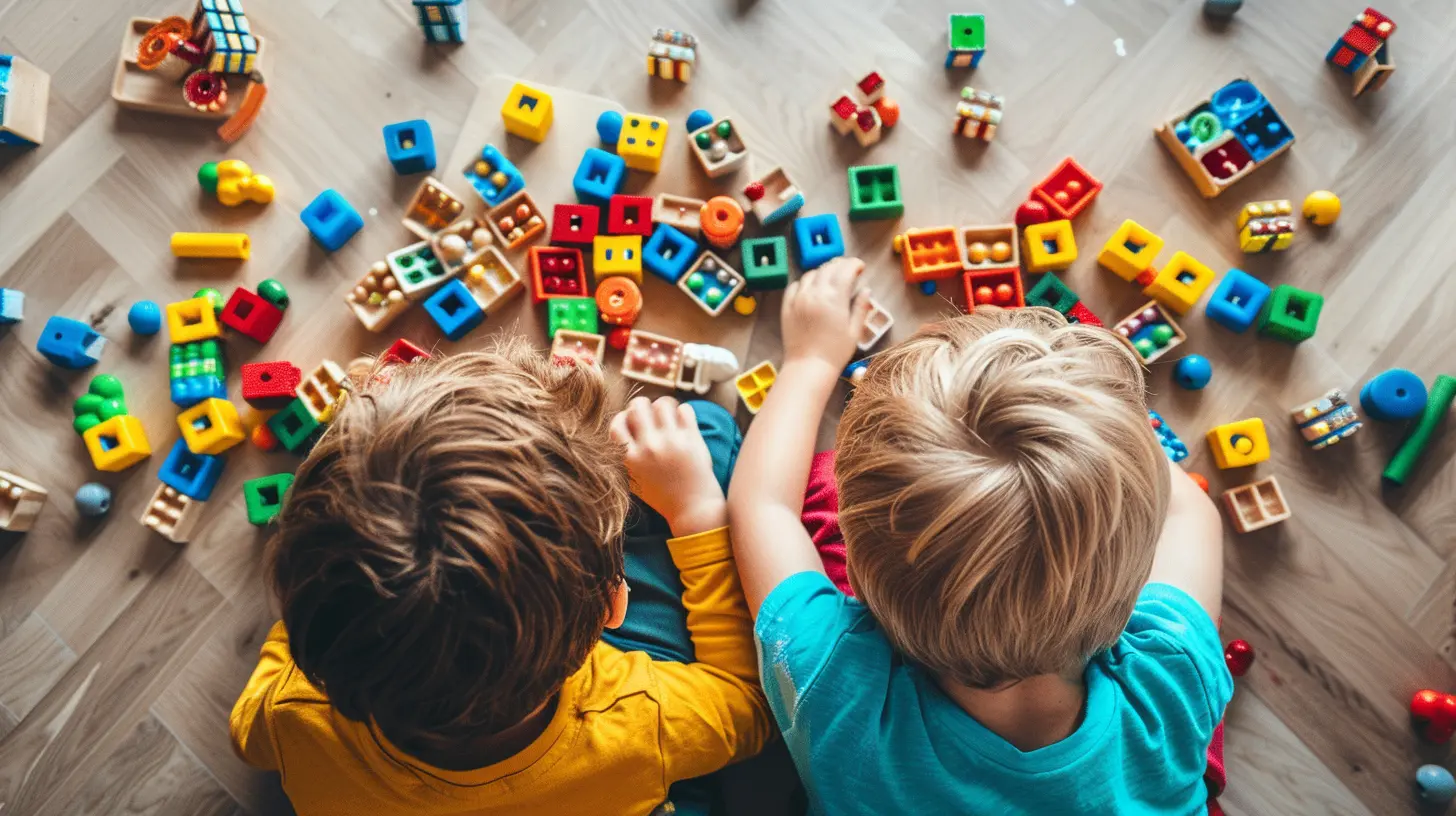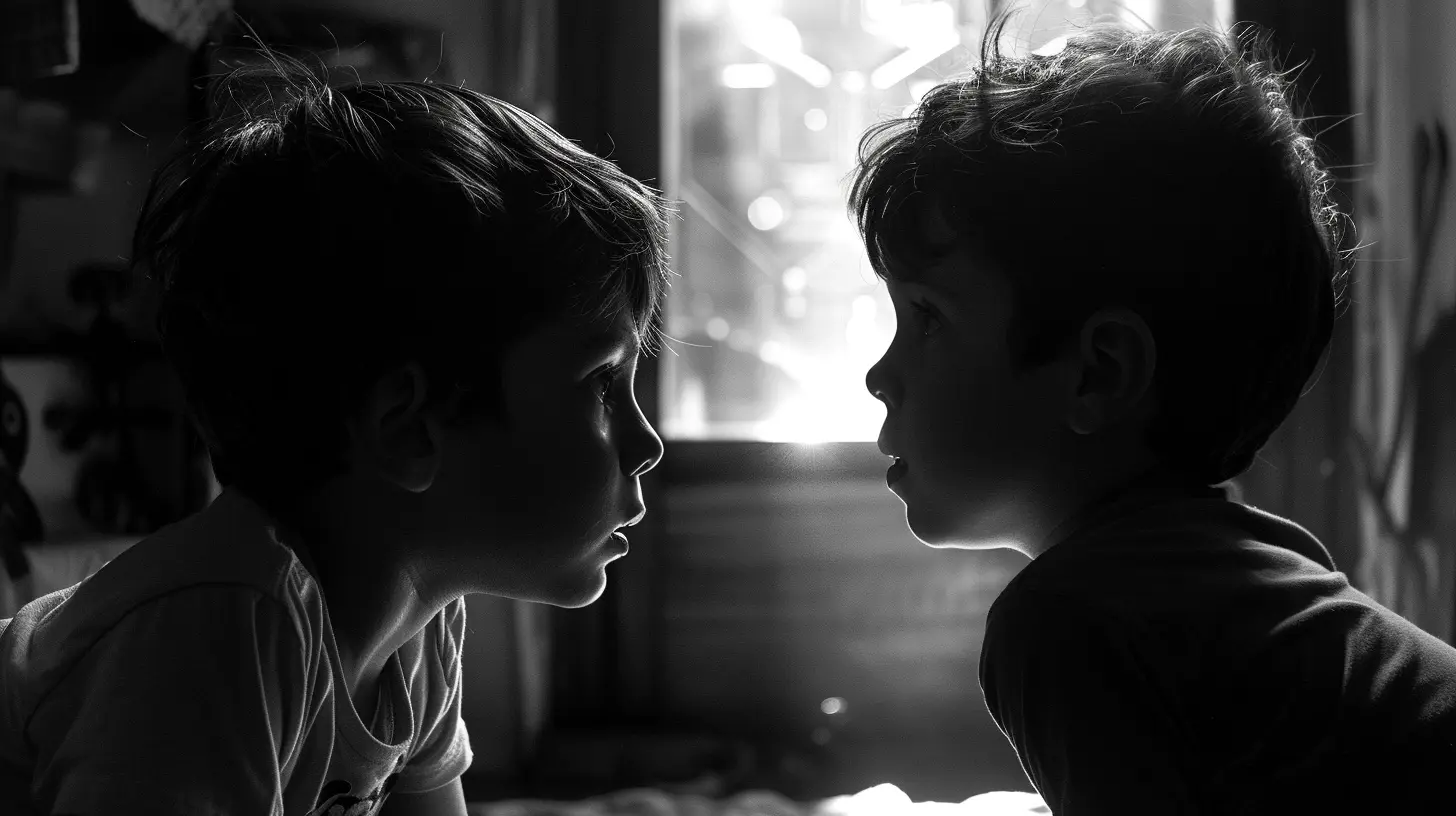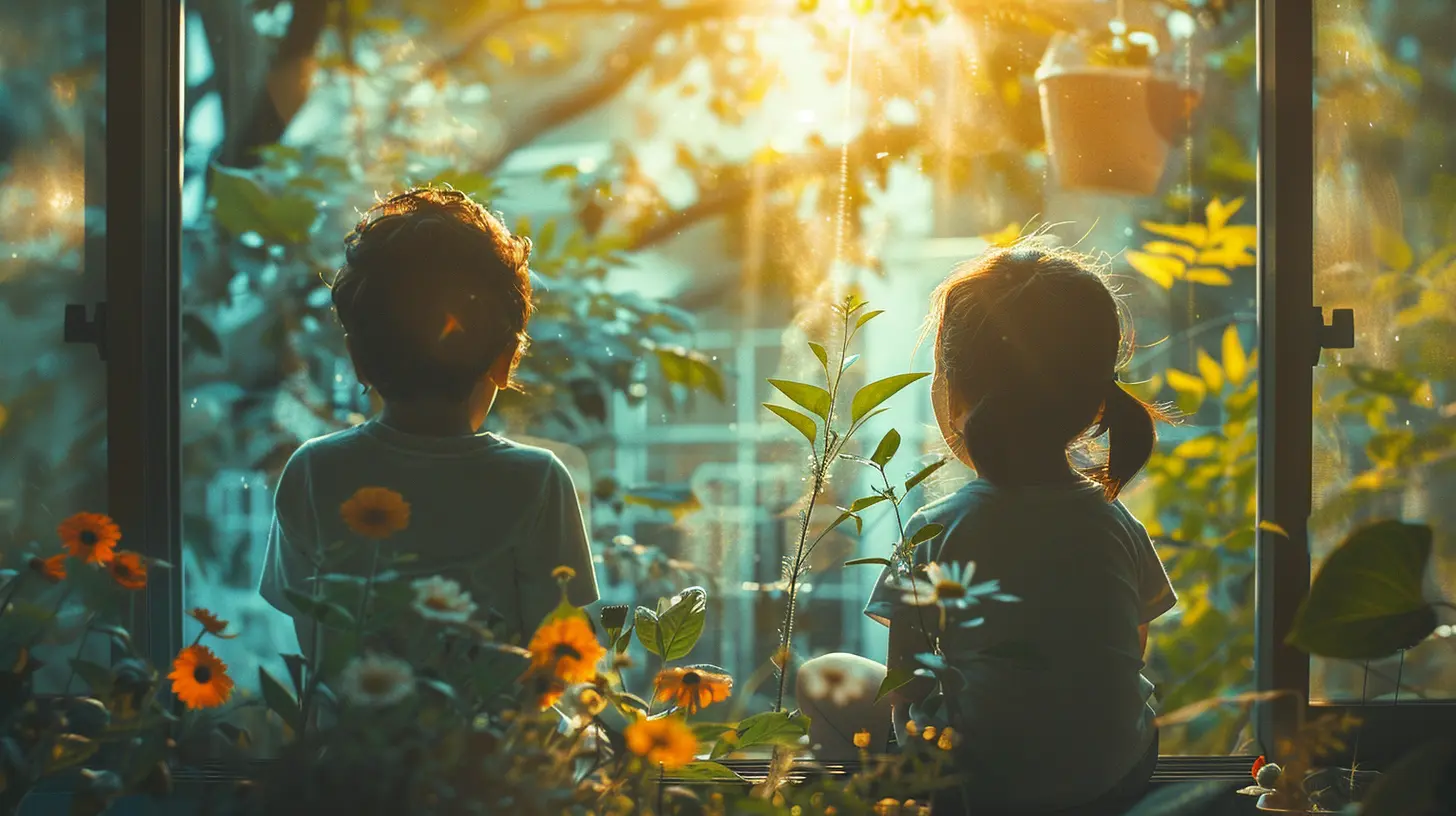The Power of Play: Enhancing Sibling Connection Through Games
19 July 2025
Let’s get real—sibling relationships can be a rollercoaster ride. One minute they’re laughing together, the next, someone’s tattling or crying over who got the bigger cookie. But guess what? There’s a secret weapon that can bring siblings closer, and it’s not lectures or timeouts. It’s play.
Yep, plain ol’ playtime. Games, pretend worlds, building forts, or chasing each other around the yard. It might look like just fun and chaos, but underneath the surface, powerful bonding is happening. If you're a parent trying to tone down the sibling rivalry and boost sibling love, understanding the power of play can be a total game-changer.
Let’s dive into how games not only keep your kids entertained but also gently glue hearts together—one playful moment at a time.
Why Sibling Bonds Matter More Than We Think
Long after friends come and go, siblings are often the people still in our lives. They’re our first friends, our first rivals, and sometimes even our first role models. The quality of sibling relationships during childhood can impact emotional health, conflict resolution skills, and even how your kids form relationships as adults.So yeah, their fights over the TV remote matter more than we think. Developing a deep connection early on can lead to a long-lasting friendship filled with love, support, and fewer "MOM, HE WON’T SHARE!" screeches.
The Science Behind Play
Before we dive into game ideas and strategies, let’s sprinkle in a little science (no boring textbook stuff, promise).Play is actually a huge deal in child development. According to psychologists like Jean Piaget and Lev Vygotsky, play is essential for cognitive, social, and emotional growth. Through play, kids learn to:
- Take turns
- Practice patience
- Develop empathy
- Strengthen communication
- Express emotions safely
Now, throw siblings into the mix, and you're essentially giving them a mini-lab to experiment with all these skills together. When they play together, they create shared memories, work through problems as a team, and practice regulating emotions without adult intervention.
That’s pretty magical, right?
How Play Bridges the Sibling Gap
We all know siblings can be as different as night and day. One kid is loud and adventurous, the other is quiet and bookish. But play has a sneaky way of leveling the playing field. It gives kids common ground—even if they have wildly different personalities.Let’s break it down.
1. Promotes Teamwork Over Competition
Siblings compete for everything—attention, praise, the last cookie. But cooperative games flip the script. When kids join forces to defeat a common "enemy" (like a family game night boss or a puzzle), they start seeing each other as teammates instead of rivals.2. Improves Communication
Ever heard your kids speak a completely made-up language while playing? Play encourages creative, open communication. Whether they’re building a LEGO city or staging a superhero play, they’re learning how to listen to each other's ideas, express theirs, and take turns talking.3. Teaches Conflict Resolution
Let’s be honest: no game goes off without a hitch. Someone disagrees, someone cheats (oh, those sneaky strategies), someone sulks. But guess what? That’s actually a good thing. These small conflicts during play help kids learn how to manage bigger ones. It's like training wheels for real-life problems.4. Deepens Emotional Bonds
Play invites laughter, eye contact, goofy moments, and emotional sharing. These are the glue sticks of connection. Even a quick five-minute game of catch in the backyard creates a shared history—those “remember when” moments—that bind siblings emotionally.
Types of Games That Boost Sibling Connection
Not all play is equal when it comes to strengthening sibling bonds. Some games naturally spark more interaction and connection. Here's a rundown of the best types to try.1. Cooperative Board Games
Games like Outfoxed!, Forbidden Island, or Race to the Treasure get kids working with each other instead of against each other. These are perfect for kids prone to meltdowns when they lose.Pro Tip: Let kids take turns being “team captain” so everyone feels empowered.
2. Imaginative Role Play
Whether your kids are running a pretend restaurant, acting out knight-and-dragon adventures, or building a spaceship from cardboard boxes, imaginative play encourages creativity and collaboration.It’s basically the training ground for empathy and understanding—after all, they’re stepping into someone else’s shoes (or capes).
3. Outdoor Physical Games
Tag, hide and seek, obstacle courses—these are ideal for releasing energy and sparking laughter. Outdoor games reduce stress and create those wild, messy moments that bond siblings naturally.Bonus: They also build trust when one sibling has to lead or help the other.
4. Building and Construction Play
From LEGO towers to epic train track setups, building something together teaches negotiation (“No, the zoo goes here!”), compromise, and patience.Tip? Let them lead the project together. You’d be amazed how a shared goal brings unity.
5. Digital Games (With Supervision)
Yes, video games can actually be a bonding tool—IF chosen wisely and supervised. Games like Minecraft promote cooperative creativity. Just keep an eye on screen time and ensure the games encourage connection over competition.How to Foster Playful Sibling Time (Without Losing Your Mind)
Playtime’s great, but let’s face it—getting siblings to cooperate doesn't always go smoothly. So how can you make playful bonding a regular (and peaceful) part of your home?Here are some user-tested tips:
Set the Stage
Create a play-friendly space. A corner with pillows, costumes, art supplies, blocks, or games can invite spontaneous sibling fun. Keep it open-ended and accessible.Know When to Step In—and When to Step Back
It’s tempting to mediate every disagreement, but try letting them work things out first. Light guidance ("What could you both do to fix this?") is often enough to spark problem-solving.Make It Routine
Set aside sibling playtime, even 15 minutes a day. A consistent "brother-sister bonding time" can go a long way in making play a habit and not just a once-in-a-while thing.Celebrate Teamwork
When they complete a puzzle together or play a game without arguing, call it out. Positive reinforcement goes a long way. “You two worked together like a pro team!”Get Involved (Sometimes)
Join the game occasionally. Not only does this show them play is valuable, but it also offers a chance to model kind words, patience, and sharing.When Sibling Play Turns Sour (And What to Do About It)
Not every sibling play session ends in giggles and hugs. Sometimes things go sideways. That’s normal! But instead of shutting it down, use it as a learning moment.Here’s how to handle common challenges:
- Too Competitive? Switch to cooperative games.
- One Overpowers the Other? Balance the power or assign roles that encourage equality.
- Constant Arguing? Pause play, help them name their feelings, and guide them toward a solution.
- One Refuses to Join? Meet them where they are. If they love reading, suggest acting out a favorite story with their sibling.
Remember, the goal isn’t perfection. It’s progress. Each day of connection, no matter how small, adds up like coins in a piggy bank.
Long-Term Benefits of Playful Sibling Connection
So what does all this play really add up to over time?- Stronger sibling relationships
- Improved emotional intelligence
- Better cooperation and teamwork skills
- Lower levels of sibling rivalry
- Deeper trust and friendship
And here’s the best part: kids who grow up feeling securely bonded to their siblings tend to support each other through life’s ups and downs—teen years, college, adulthood, even parenthood themselves.
You’re not just creating a peaceful home today. You’re nurturing a lifelong bond.
Final Thoughts: Play Isn’t Just Fun—It’s Foundational
So the next time your kids are rolling on the floor in fits of laughter over a silly game or plotting an imaginary heist from the Lego bank, lean in. Those are the magic moments.Playtime isn’t just filling time. It’s forming bonds, teaching empathy, building communication, and planting the seeds of friendship that can last a lifetime.
Let them play. Better yet, play with them. Encourage it. Celebrate it. Protect it like the precious treasure it is.
The power of play is real—and it’s one of the strongest tools we have for enhancing sibling connection.
all images in this post were generated using AI tools
Category:
Sibling BondingAuthor:

Max Shaffer
Discussion
rate this article
2 comments
Ardent Burton
Play fosters bonds, teaches teamwork, and boosts sibling relationships beautifully.
November 15, 2025 at 3:26 AM

Max Shaffer
Thank you! I completely agree—play truly strengthens sibling relationships and fosters essential life skills like teamwork.
Loretta McGrath
What a wonderful reminder of the importance of play in strengthening sibling bonds! Creating joyful shared experiences can truly enhance connections and nurture lasting friendships. Encouraging games not only fosters teamwork but also builds beautiful memories. Thank you for sharing these insights to inspire families to embrace the power of play!
August 1, 2025 at 2:52 AM

Max Shaffer
Thank you for your thoughtful comment! I'm glad you found the insights on play and sibling connections inspiring. Embracing joyful experiences truly makes a difference!


